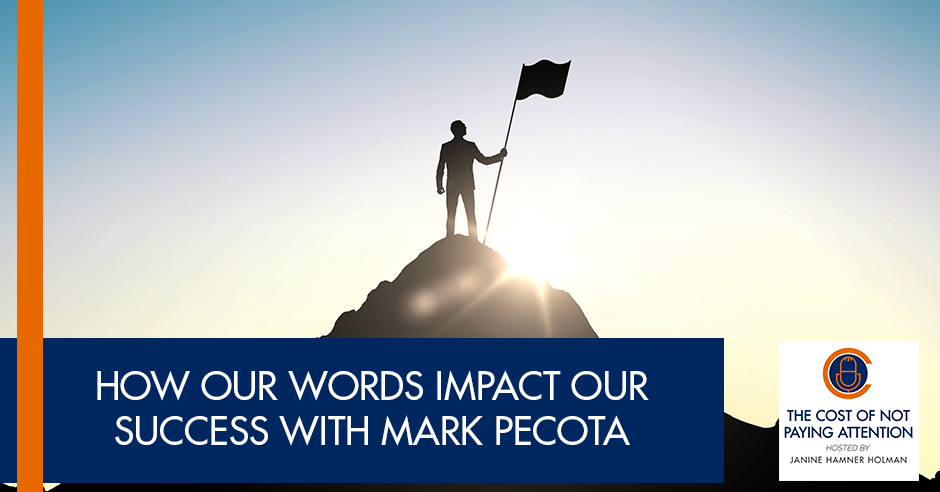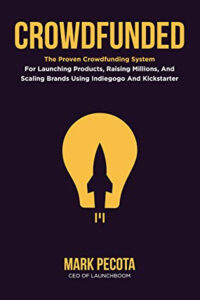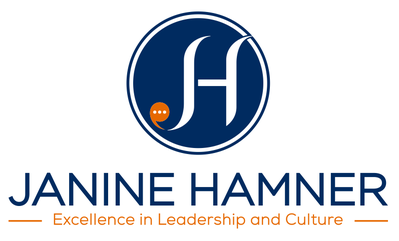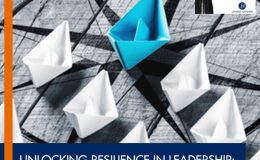
Language is formative. Words are important, especially in today’s world. Words like diversity, equity, and inclusion have become essential words, and it can have us think about the words that we use for things and how some ideas have been marginalized by the words that we have chosen for them. This raises my curiosity about how our words impact and affect the way we get important ideas across…or not across! Sharing his insights on this subject is Mark Pecota, the CEO and Co-founder of LaunchBoom, a global crowdfunding agency that has raised over $50 million on Indiegogo and Kickstarter since 2015. He is also the author of a number one bestselling book, Crowdfunded. Mark shares how they’ve grown as a company by learning from feedback and information. He also emphasizes how crucial it is to choose our word for things and the cost of not paying attention into those words.
You can find out more about his company at www.launchboom.com. They are also hiring! People can apply on our website and email us at hello@launchboom.com
HOST: Janine Hamner Holman | Janine@JandJCG.com | LinkedIn, Facebook, and Twitter | Subscribe to my Newsletter! Book me to Speak!
—
Listen to the podcast here:
How Our Words Impact Our Success With Mark Pecota
Interview with LaunchBoom CEO Mark Pecota
What am I paying attention to now? The power of language. I am working on a scope of work for a client about diversity, equity and inclusion, which have become big words in today’s world. I’ve been thinking a lot about the words that we use for things and how there are some things that have been marginalized by the words that have been chosen for them, soft skills, people skills, social scientists, emotional intelligence, fuzzy. I’ve gotten really curious about how that then impacts and effects the way that those get “importantized” or not in our world. Language is so formative and words are important. I think we’ve all gotten a lot better at thinking deliberately about the words that we choose for things and about what the cost of not paying attention is to those ideas when we forget.
I am excited to introduce to you our guest, his name is Mark Pecota and he is the CEO and Founder of LaunchBoom, which is this very cool company. They are a global crowdfunding agency. They’ve raised over $50 million on Kickstarter and Indiegogo. They are experts in how to get these funds. They are certified Indiegogo experts, a certified Kickstarter expert, and a preferred Facebook marketing partner. Since 2015, Mark and his team have worked with hundreds of entrepreneurs to launch their products online. He’s got really deep knowledge of crowdfunding and digital marketing and scaling companies, which has been critical to not only the success of his clients but also for his own company, LaunchBoom. He’s also the author of a number one bestselling book Crowdfunded. LaunchBoom is also hiring! People can apply on their website, which is LaunchBoom.com and you can email Mark and his team at Hello@LaunchBoom.com. Welcome, Mark.
Thank you. That was awesome. I’m glad to be here.
You are welcome. I’m really glad to have you. Our first question that I want to get started with is since we’re called The Cost of Not Paying Attention, what’s something that you’ve become aware of that either you or other people weren’t paying attention to?
I want to start by creating some context connected to this pandemic. At the very beginning of it, like everyone else, we were thinking “what is going on? What’s going to happen to our business?” I’m grateful that we’re one of the lucky businesses that has been able to thrive during the pandemic. Since we focus on launching products online, we’re focused on eCommerce, all online sales saw a massive increase across the whole entire industry and so we’ve benefited from that. Our company grew, doubled in size, maybe a little bit under doubling. Doubled in revenue but in terms of our team size, we were about 30 before the pandemic started and now, we’re at 52 people, which has been super exciting.
That’s amazing! And you’re still hiring.
We’re still hiring. The faucet’s on full blast, and sometimes it’s trickling in, but we are still hiring. It was challenging hiring but this isn’t my point. During the growth, I would say we weren’t paying attention to put it simply to our employees’ wellbeing enough. There was a lot of focus on getting new people in but the people that have been with us for a long time, I thought we were checking in enough but we weren’t. When it came down to it, we didn’t have systems in place to do a good job of checking in on employee wellbeing, like how they’re doing, how overworked they are because our number one core value is to own it. At the end of the day, it was like the way of being of taking responsibility for yourself.

CROWDFUNDED: The Proven Crowdfunding System For Launching Products, Raising Millions, And Scaling Brands Using Indiegogo And Kickstarter
We always say it’s very important to have that value for us as we’re a remote team. Everyone works from home… all over the world. We need to have people in our company that doesn’t need to be micromanaged. I don’t think anyone should be micromanaged but especially they don’t need to be. They’re going to take responsibility for themselves but something that can happen with that value where it can be taken too far is where we’re like, “They got it.” They’re taking ownership over themselves but what happened is that people do take it too far, I’ll say on our employees and it’s not to put blame on them or anything but they do take it too far. It’s like, “I got this, I don’t want to burden anyone else in the team with the problems that I’m facing.” It costs us employees burning out. There were a few burning out where we even had one almost quit that had been with us for a long time.
I learned a lot more than what I’ve said already but I learned a lot about self-esteem or self-worth where there are people, and I would say I’m one of them, where I’m more prone to having performance-based esteem. I am more prone to having my self-worth be propped up by what I am achieving and doing. Being aware of people on the team that are more prone to that is really important. I also learned that through this period because when people were getting overworked and overwhelmed, their work was suffering, which was then causing them to sacrifice parts of their life, their relationships or working out, health. Their work was suffering. They were overworked but they were still trying to do more work!
Negative feedback loops. That was another big piece. It’s related to the question that you asked but there was something else that I learned.
Oh I love that Mark. One of the things that’s great about me is I have a pretty healthy sense of self-esteem and my default is, “I got it. What do you need? I will get that done.” But what can then happen is like, “What do you need? Okay, I got it.” But I don’t got it! It’s like overwhelm, freak out, sacrifice and we get into this downward spiral. One of the things that are so tricky is because many of us have so many things that we’re juggling and there’s so much uncertainty that we’re all swimming around in. What’s going to happen with COVID-19 is certainly a big one? What’s going to happen with the economy? People with small children are then dealing with homeschooling, essentially their kids who are trying to do distance learning. And we are in a very divided country. What’s that going to mean?
One of the things I realized was like my baseline of “I’m okay, what do you need and I got it” used to be somewhere mid-chest level. Now, my baseline is somewhere mid-forehead level. Something happens and it doesn’t have to be something big! I can get an email from somebody that’s snarky and suddenly I’m underwater because my buffer is so small.
A lot of people who were in that situation and with my baseline being somewhere between my eyes and my forehead and my hairline like, “Crap, I’m not going to be able to go see my parents,” and that’s a big thing. Sometimes it can be, I turned on the news and saw this thing or my kid said this thing or my cat threw up… something relatively minor. Because we’re all operating in this place of unknowingness and overwhelm, something small can immediately throw us for a loop. How have you seen that? With your workforce being so remote, what are the things that you’ve put into place and the things that you’ve realized, “We have some work yet to do here. We’re making progress but we haven’t yet quite figured it out to manage that,” and to help your team manage that?
Everyone works from home all over the world. We need to have people in organizations that don't need to be micromanaged. Share on XWe’re still in process of figuring out everything, I’ll say that. I do think that we’ve made a lot of forward progress regarding the problem that I wasn’t aware of initially. We hired an ops specialists so it’s an HR role. I wish that we did it way sooner to be perfectly honest with you. She’s great. Her name’s Katelyn. She’s awesome. Having someone that their job is to focus on the people. The way that I view people ops in general is the traditional I’d say like HR roles, people would consider them as HR is there to protect the company. Protect the company like the legal stuff. Protect the company from the employee.
There still is an element of that for sure, clients, all that. The number one thing for me though, the way I view it, is that they’re trying to protect the employee from having a bad experience working at LaunchBoom… like the employee is their client or customer. Having a person that is focused on that and is responsible for that has been huge. There’s almost like too many things to count that even in the short time that she’s been here, like having me focused on it every day and the questions that she’s asking, everything, it’s a lot of things that have changed. I will say those some very specific things are that we were much more in tune with the bandwidth of our team members.
When it comes down to very specific roles, we track everything now like, how many projects they have? We have different project types, not to get into the nitty-gritty but we have different project types basically like different scopes of work for different project types. We assign different scores to the different project types and then have a very simple calculation to be like, “Where are we at?” We’re never going to go above this cap, the score. If we are that place like we need to hire for someone else or we need to figure something else out, there might be another problem here. We can’t go above this cap because if we do, that’s when we get the territory when people are going to start to get worn out or burnt out. That’s been huge. This isn’t progress but we’re instituting very clearly written job descriptions and growth plans for all the roles.
Also, clear processes for how we do employee reviews like when they can expect like conversations about promotion or compensation increase. The last one is I put a lot of time into writing an employee handbook, which sounds really boring. In the one that I wrote, I have to toot my own horn but I guess to toot my own horn, it’s pretty good. It’s not like a corporate robot, it has humanity to it. It’s the story of LaunchBoom and talking about our DNA and get a lot of positive feedback from employees about that. I would recommend doing that to anyone as soon as you can. Having something in there, even the process of me going through it forced me to think about certain things that I’ve been putting off like, “How will we do growth plans? How will we do performance reviews?” things like that.
One of the reasons that I wanted us to have a conversation that everybody could read was because of how conscious and deliberate you’ve become about thinking about your people. Lots of organizations say things like, “Our people are our most important asset,” and usually it’s bullshit. Usually, their most important asset is their bottom line. Their most important asset is triple net profits. They’re focused on that and part of what I love and respect about you is you’re running a business, you got to focus on the bottom line and it’s really important to you to also focus on your people. One of the things that you mentioned was thinking about how often do we do performance evaluations? The other thing that comes up when we start talking about that is how often people are getting and receiving feedback.
What have you done inside the organization, if anything yet, about thinking about how to make feedback something that people are like, “Awesome. I get to get some feedback,” as opposed to, “Crap, I got to get some feedback?” When I was growing up in the business world, and I’m a little older than you, feedback was never good. It was like, “Crap, feedback.” Especially because of your generation and the generations that are coming after you, which are focused on, “I want feedback so that I can improve,” but to get that you’ve got to have a high trust culture. You’ve got to have it be that, “Great. I’m going to get some feedback and then we are maybe going to have a conversation about that feedback.” What have you done around that?
I would say that in terms of our team, they’re hungry for feedback like what you were saying. We’re playing catch up in terms of giving them feedback in a structured way. That’s highly valuable for them and us. It’s in process. The simple structure that we’re putting in place is like quarterly review cycles but we have every six months is one, we’ll talk about a comp. At the same time, we’re open to talking about comp at any time but we’ll for sure we’ll talk about it and evaluate comp every six months. Every year there’s a 360-feedback as well. We’ll get feedback from their other team members as well, five of them. It won’t be anonymously, given directly to them and then they can also give feedback to their managers. This is all like structure that we’re putting in place. We’ll see how it goes but I didn’t come up with this. There are a lot of people that do things like this. I got a lot of inspiration from the company Basecamp who I admire and always have since starting our company.

Impact Of Our Words: When people get overworked and overwhelmed, their work suffers, which then causes them to sacrifice parts of their life, relationships, or health.
I’ve used their product but I don’t know anything about them as a business. Why are they a company that you look up to?
They are the best.
What makes them the best?
First off, the cofounders, Jason Fried and the other guy who goes by DHH. I don’t know his name at least David but his handle is DHH. The co-founders are also very outspoken and prolific writers. They write a lot, not on blogs, they’ve written a lot of really great books. Some popular ones were Remote is a really popular one. There’s another one that’s called It Doesn’t Have to Be Crazy at Work or something like that. It doesn’t answer the question why. They’ve set up their company in a way where they do care about the people and they’re super transparent about it. It’s not through their writings but their employee handbook is public, anyone can look at it, which is cool. They’re not hiding anything and I liked the way that they do compensation for employees as well.
Everyone knows what it’s going to be, there are different levels for different roles. It’s like, “This is how much it is.” There’s no negotiation in it, which I think is a better way of doing it the time of doing it as well. Every single year they get all of the paid data across the US and I think they pay some percent, like the top percent or the top 5% they’ll increase the salaries or are given the same, whatever it is, for that role. It’s super transparent. At the core, transparency, high focus on people, they’re also about long-term thinking like super about that and not afraid to challenge the norms out of doing anything. I would say for those reasons I admire them.
I was going to say one other thing. Some feedback in general and this is something else that we’re actively thinking about is how to train, our team, how to give and receive feedback because I would say we’re pretty good at it. It’s a culture where two of our other values, one is to stay hungry and the other is to stay curious and we take that into account when we’re hiring people. With those values, along with the ownership, people are, I would say in our company, tend to be good at giving feedback and receiving feedback but I think that people can be better, even myself. I want to turn it into a training, even any role when they come in, this is how you give and receive feedback. I’ve done personal development trainings as well that specifically taught me how to give and receive feedback and it’s been really powerful for me. That’s something I’m actively thinking about now.
You and I could have a conversation about that offline because it’s one of the things that I do. Are you familiar at all with Carol Dweck and The Growth Mindset? For you and our readers, Carol Dweck is a social scientist and has developed a way of thinking about who we are as people and we always are shifting between a fixed mindset and a growth mindset. A fixed mindset is: I am how I am. It is what it is. I am good at math. I am not good at math. I am good at science. I am not good at science. I am a programmer. I am not a programmer. I’m fixed. Versus a growth mindset where I think I may not be great at math now and there are things that I’ve done where I kill it at math. Bringing that growth mindset, we are not fixed beings. We are beings that can grow and grow over time and grow with learning, help and support. It is also a great way to think about feedback because then it creates a concept that “in order to get better, in order to grow, we need feedback.”
No More Negative Feedback Loops. Share on XWe cannot grow by ourselves. It’s the reason that, when we look back at times that were tough, we think, “I learned something new. I grew in a specific way. I realized something that what I thought was true about myself that isn’t true.” It’s one of the things that I teach in organizations is that we are not one thing. We are not fixed. We grow. We shift and we swim between the two (fixed and growth) and the trick is how to stay more often, more frequently in the space of growth mindset and looking at challenge each other with grace, with kindness, when somebody else isn’t yet recognizing, “That was a pretty fixed mindset way of looking at something or looking at me.” That could be a great tool to bring into your organization and you all could do a book group and read it and see what comes up.
I appreciate that. I’ll definitely check that out.
You’re welcome. I love doing things like book groups inside of an organization especially inside of an organization where everyone is remote. It’s one of the great ways of creating connection and belonging. What are other great ways that you have found? You’ve been an entirely remote business now for years.
We weren’t originally, it was 2017 when we made the switch.
For three and a half years, you’ve been remote and you have people in different states but also in different countries. It can be challenging to keep people together, to keep a sense of community, to keep a sense of connectivity, to feel like there is a thing called LaunchBoom that we are all part of that has some organizational culture or consistency. What are the things that you’ve found that have been great at creating that?
First off, I’ll say that there are elements of it that are difficult for sure where there are things that you can’t replicate in a remote environment that you can get in an in-person environment. We technically are a hybrid company because we do have a studio space in downtown San Diego that our team works out of. We have 2,500 square feet. We have all the sets and everything but creative needs to be like a collaborative working environment. When we hire for those roles, it’s San Diego so I want to start it with that. I would say because we’ve now done both before working non-remote and now working remotely, you still can get pretty damn close in terms of having a really solid culture and building connections between team members.
Some of the things that we do, it almost sounds like stupid, simple and boring but I do you think it works, having clear set huddles and meetings. Our team’s big enough now that we have separate huddles for the different businesses, we call business units. We have a business unit, the eCommerce scale and then we have our creative team, which launched many studios. Everyone has different huddles every single day where they go over highlight from yesterday, what they’re working on now, where they’re stuck like stand-ups that a lot of people do it, that works well.

Impact Of Our Words: There are things that you can’t replicate in a remote environment that you can get in an in-person environment so we get to be more conscious about that.
We also have masterminds. We do multiple types. We’ll have, for instance, a digital marketing mastermind where different roles have come in and someone will lead it and we have topics and then they discuss the topics. It’s a cool way for people to get and grow together. Now, I’m going to get into the nitty-gritty. We have specific weekly syncs between departments. Even though we have these separations of departments, we still have weekly meetings where we have very specific agenda of having them sync together and make sure that, I guess like being the most productive, working cohesively together, building together.
The last one would be a Friday team meeting where we have an hour-long meeting where everyone comes together and we practice open-book management. Start off with wins from the team then I open up our books, our P&L, talk about what our forecasts are, where we’re at. Everyone understands how they fit into the bigger picture here. I found that to be effective and get a lot of positive feedback on that. Every single director in the company does an update and this is one of my favorite meetings of the week. We were on Fridays. It’s a great way to end the week. We used to do all these meetings on Mondays. I think it sucks. It’s so much better going into the week than having that ten meetings. We leave our Mondays open as possible. At the end of the week, let’s do all these.
Huddle up, look at what happened and what we got going on for next week.
That’s still a lot of work stuff. We’re trying to get better at non-work employee engagement. We had an event, a grilling and chilling for people that were in the San Diego area but it’s a small subset of our company. It’s almost sad. It was cool for everyone that showed up but now we’re in a process like Katelyn, the girl I was talking about, she has a lot of great ideas for things to do for Christmas to add the team like Secret Santa. It’s so tough because we have team members in Argentina, Philippines, Bulgaria, Ireland, Canada and across the US. It’s like, “How do you even facilitate shipping for this stuff?” I’ve tried to ship stuff to our team member in Bulgaria. It never got there. Those are some things that we’re doing and also thinking about.
Between COVID-19 and the world of work, more and more organizations are having to think about this issue of how do you keep people connected? How do you keep people on the same page, rowing in the same direction? I want to pick up on essentially how open you have your financial books, which is highly unusual. If organizations want to do that, rock on. Part of why that’s working so well for you is that people know exactly how what they’re doing is contributing to the whole. That’s one of the things that, especially in larger organizations, organizations can lose sight of how important that is. Whether I’m the CFO or I am washing the floors in your office building at night, having an understanding how what I’m doing is contributing to what you’re up to and how what you’re up to is making the world a better place is so important. I think it’s smart that you are intentionally focused on that.
Thanks.
You’re welcome. What’s one question or if you have more than one, that’s great, that I haven’t asked you so far that you’re thinking, “I really hope she asks me about this because I love talking about this. This is one of the things that I think differentiate who we are or makes us such a great place to work?”
With new feedback and information, we can readjust the trajectory of where we want to go. Share on XI will admit there wasn’t one question that has been burning in my mind. I guess it’s what you were saying about the open-book management, how people understand that they’re part of something bigger or they understand how they are having an effect on the business. What I want to talk about is the importance of having employees understand that they are part of something bigger which is something that I am working on. I guess the question is, how do we make employees feel like they are part of something that’s bigger? How do we make them know that there is a growth opportunity for them? It’s all related to the way I look at it.
How do your people know what it is that LaunchBoom is up to? One of the statistics that I saw that is mind-boggling to me it’s something like 86% of employees have no idea what the goals are of the business that they work for.
That’s was a much more articulate way of putting it. That’s what I’m trying to get at. It’s super important. Also like a short story. We do quarterly retreats with our leadership team. During the growth, we hired two new directors to lead our LaunchBoom from studios, which are videography and photography division. There are a lot of new people even in leadership positions as well. They were on the retreat and how we do our retreats is it’s largely topic-based for people to present topics beforehand and then we go into essentially trying to figure out solutions to these topics and opportunities to take action. I don’t remember exactly what topic we’re exploring but one of the directors brought up that said that, “I feel like I can’t accurately answer this question because I don’t know where we’re trying to go in three years.”
I think myself and the rest of the leadership team, which are my business partners, we don’t have it super clearly defined. We all understand. Within this area we see the opportunity. We’ll always answer these questions but you brought up a great point where you don’t have it clearly defined anywhere. It’s not an employee handbook or anything like this is like where we’re trying to go. If I went and asked ten people in our company where is LaunchBoom trying to go in three years? I would bet money that like everyone would say something different or say, I don’t know.
Out of that, I made it an objective going into quarter four that I’m going to focus on creating a vivid vision for where we are trying to go in three years and it’s going to be like colorful language written out like this is what LaunchBoom would be like, what we will have accomplished and our mission and things like that. We don’t even have a clearly defined mission, to be perfectly honest with you. All that stuff is really important. We’ve gotten by with being wishy-washy and still have had a lot of success. It’s taking our company to the next level, which is what we want to do. It’s really important to have that.
To have that mission, vision values thing that grounds the organization. One of the things that I love about getting clear about that, and I think it’s brilliant that this is what you guys are up to, because when we get clear about what’s our mission? What’s our vision? What are our values? Then anything that anybody is up to they can look at, “Is that going to further our mission, vision values? If not, then why are we doing it?” Mission creep is so rampant, getting clear about what are we up to, why are we doing it, why is this important to us in the vision of the world that we want to create? I think it’s awesome that’s what you guys are creating.
We came up with values that we’ve always held true from the beginning. I agree with you that those three things are the bedrock and foundation. I would say that values are maybe the foundation, maybe you could argue that mission is. It doesn’t matter.

Impact Of Our Words: Between COVID-19 and the world of work, more and more organizations are thinking about the issue of how to keep people connected.
That’s a chicken and the egg question and I think it’s really interesting. I think I find these things interesting. In part, the way that I see it is where you were going, that like, “Our values are our values. This is who we are and how that gets expressed in our vision that might change. It’s possible that our mission might change.” There’s been a lot of pivoting that’s needed to happen in this time. Sometimes those things can change but our values are our values. Probably that’s the least likely in my experience to change over time that you got that as your foundation.
I agree with you. When people look at these things differently in terms of the actual importance of vision, I was bringing this up in a mastermind group I’m part of and someone was challenging and saying that, “I don’t think,” and that he was talking to a mentor of his that’s it’s been successful, “Stop focusing so much on 3 to 5 vision and so really focus on like your values and like your principles and let that guide you because things change so much.” I’ve honestly been resistant to it because of how rapidly things have changed our business from like month to month and we’ll set objectives and they’ll be completely different by the end of the quarter. If it’s changing this rapidly than setting a three-year vision, I don’t even know the point of it.
How do you even do that?
Where I’ve landed with it is that there still is value to coming up with a vision that’s three years out of five years or whatever it might be. There is the intention of this is somewhere we can go and with the knowledge of this can always change then that’s fine. With new feedback and information then we can read our trajectory of where we’re going to go.
Pick a new North Star.
I’m still thinking about it and to be perfectly honest. I’m going to go through the exercise of coming up with a vivid vision. It’s one of my objectives by the end of the quarter, the whole team knows but I ended, it has to be written now to everyone. I’ll present it and everything. Another thing though that was pretty cool. When I was talking about this with someone, he’s like, “I feel like the vision should be treated like a pitch deck.” In a lot of respects, like a pitch deck, if you’re going to get investment is like a vision of the company, there are elements of that in there. He’s like, “Like a pitch deck, you should be getting grilled on that thing, getting tons of feedback on it. I would recommend pitching this as much as you can leading up to the end of the quarter,” which is what I’m going to do. I liked that concept it’s like, “Take this and then pitch it to someone.” I am selling them on the vision. It’s like, “Does this resonate with you? What holes do you see in this? What you know about me? Does this does align with my values?” I thought that was a cool way of approaching it.
I think that’s a cool way of approaching it and what we were talking about before in terms of mindset and feedback, you couldn’t do that if you didn’t have the mindset of feedback is good. Feedback is how we learn. Feedback is how something is going to get better whether it’s me or something that you’re creating or a process. Being open to that and encouraging that is awesome and a piece of what makes what you’re up to so dynamic and strong.
I agree. Thank you.
Welcome. This has been so fun talking with you. I appreciate your time and your generosity.
Important Links:
- Crowdfunded
- LaunchBoom.com
- Hello@LaunchBoom.com
- Basecamp
- Remote
- It Doesn’t Have to Be Crazy at Work
- Mindset: The New Psychology of Success
About Mark Pecota
 In 2013, we launched EcoQube and raised $79,026 on Kickstarter.
In 2013, we launched EcoQube and raised $79,026 on Kickstarter.
In 2014, 1Hour Break saw what we did with EcoQube and we raised $105,343 on Indiegogo.
In 2015, EcoQube C came out with their new and improved version and we raised $375,058 on Kickstarter.
Up until this point, I had been trying to grow my agency, Label Creative, by taking on every project under the sun… web development, video production, branding… you name it, we did it.
But I wanted to scale. To building something that had impact. And I was becoming clear that to do that, I needed to focus.
With the launch of EcoQube C, there was no second guessing anymore.
Crowdfunding was now the focus.
Within a month, we rebranded our company to LaunchBoom and set out on the mission to help entrepreneurs worldwide launch their products using Indiegogo & Kickstarter.
I’m proud of what we’ve built…
… Working with hundreds of entrepreneurs from 40+ countries.
… Raising over $50 million.
… Becoming a Certified Kickstarter & Indiegogo Expert.
… Building a fully remote team of 30+ people.
… Writing the #1 Best Selling book in crowdfunding.
But what I’m most proud of is literally watching our clients lives change as we bring their ideas to life and scale their brands.
If you have a product you’re ready to launch in a big way, then I’d love to hear from you.





